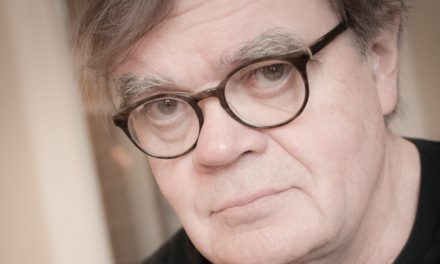Matthew Zapruder touts poetry.
Is it question or declaration? Minus punctuation, it is either/or and both. Written with wonderful passion, crushing honesty, brevity, and flair, Zapruder addresses a question he has been asked or has been asking himself for nearly 25 years. At the root of the question, he suggests, are people taught that understanding and appreciating poetry requires elite education. People who “don’t get it,” therefore, are dullards, duds, dumb. It’s no wonder we walk away from Whitman or toss the Keats for less intimidating literary kicks in novels, nonfiction, and social media. By abandoning the genre, Zapruder argues, readers risk losing out on poetry’s “places of freedom, enlivenment, true communion.”
The Oakland author, Saint Mary’s College associate professor, and The New York Times Magazine poetry editor in 2016 delves into the ways “poetry makes meaning.” His personal encounters with poetry cast a memoir-like tone that renders the dissection of poems instantly alive and prickly with dynamic tension. While reading Zapruder’s coming-of-age-through-poetry story, the thrill drawn by him—and all poets who played or play imaginatively with words—is genuine (when it comes to personal accounts) or well supported by reference to poets’ journals or second-person records and documentation.
Don’t mistake “play,” with frivolity, because Zapruder explores in rich detail and convinces with keen insight evidence that poetry throughout history has held social and political power, defined civilizations, briskly captured complex concepts like “nobility,” or preserved culture and language that might otherwise be lost. Many poems Zapruder dissects dazzle with reductive language that nevertheless captures a universe of meanings.
Essentially, Why Poetry portrays poems as vibrant, contemporary spaces in which imagination rules. Which leads Zapruder to a central premise and arguably the book’s strongest message: Certain times—or, even more so, uncertain times—make poems vital. Post the 2016 election, students in his graduate seminar were despondent or “wandering through anxious, uncertain, shifting futures.” He read to them one of his favorite poems, “A True Account of Talking to the Sun at Fire Island,” by Frank O’Hara. Making them laugh, the opening stanza offers subtle humor and acceptance despite being “different.” A following stanza encourages them to “always embrace things, people earth / sky stars, as I do, freely and with / the appropriate sense of space.”
The lines make him weep, every time, Zapruder admits. There may be no better response to Why Poetry than sharing a poem with the power and imagination to cause readers to laugh, cry, fall into the envelope of community and feel the strength to face tomorrow.
Why Poetry by Matthew Zapruder (Ecco, August 2017, 256 pp. $24.99)
















